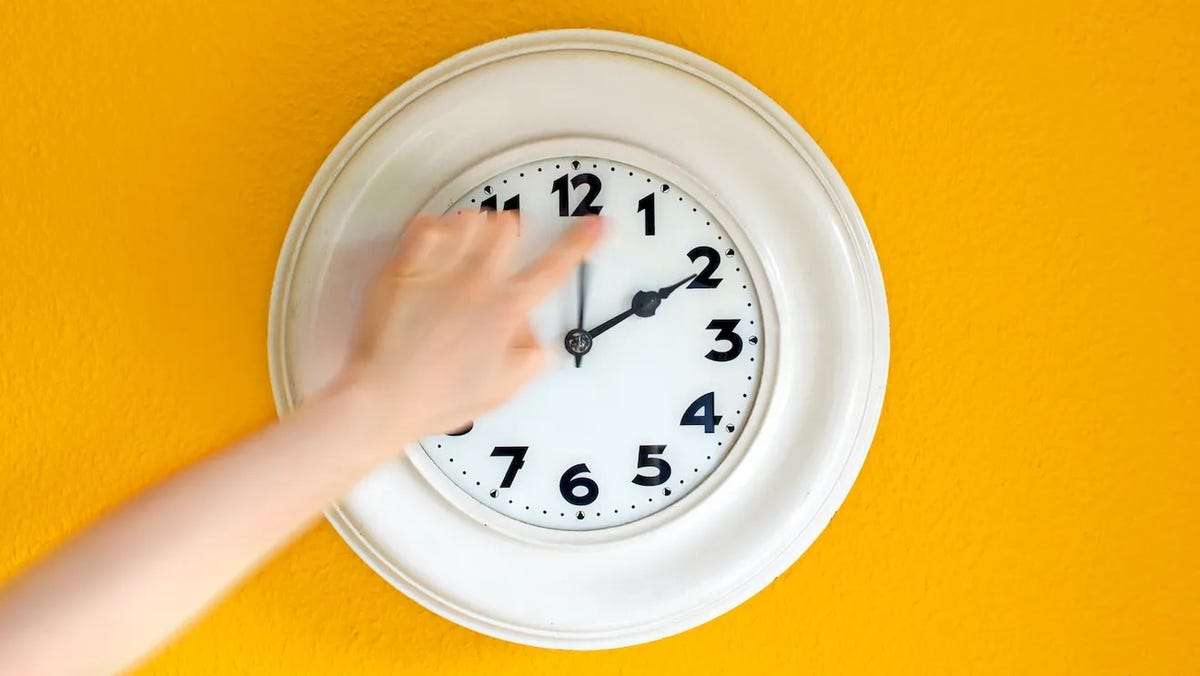Daylight Saving Time: How did we get here?
Once again, most Americans will set their clocks forward by one hour this weekend. How we came to move the clock forward in the spring, and then push it back in the fall, is a tale of that spans over more than a century. (March 7) (AP video by Kendria LaFleur)
Are you feeling a little tired right now? Like maybe you lost an hour’s sleep?
It’s the first day of Daylight Saving Time, and if you don’t feel a little tired, maybe you forgot to make the clocks “spring ahead” an hour before you went to bed Saturday night.
The American Academy of Sleep Medicine (yes, there really is such a thing) conducted a recent survey that found 55% of Americans feel tired as Daylight Saving Time swipes an hour of their day. (The other 45% were asleep and couldn’t be bothered.)
That same survey also found that this draggy feeling can last five to seven days as the body’s internal clock adjusts to DST.
Ideally, the best way to prepare for the DST change is to start making smaller adjustments to your routine a few days before the second Sunday in March. But you — and millions of other Americans — probably don’t plan that far ahead when it comes to resetting the clock twice a year.
However, there’s still time (although there’s an hour less of it right now). Some search engines helped find a few suggestions for making the shift into the new time easier.
The AASM website noted that it’s important to go outside as soon as possible the morning of the time change. Why? “It’s not just a loss of an hour asleep, but we’re getting our light at a whole different time of day,” Beth Malow, the director of the Vanderbilt Sleep Division at Vanderbilt University Medical Center, told the online-media site Vox. “Everything is off by an hour.”
Getting outside, or sitting by a window with sunlight streaming in, helps the body readjust to the time change.
Forgive this one-minute intrusion: Amazon demanding $3 a month to keep Prime Video ad-free
The Sleep Foundation’s website noted that a nap is OK “in moderation… These naps should never exceed 20 minutes in length; otherwise, you may wake up feeling groggy.” Longer naps in the afternoon may make it harder to go to sleep that night, thus defeating the purpose.
The website also cautioned against drinks with caffeine too close to bedtime. “Caffeine consumed within six hours of bedtime can disrupt your sleep cycle. Moderate amounts of caffeine in the morning or early afternoon should have less of an effect on your sleep.”
So, for the next 242 days, Eastern Standard Time will be Eastern Daylight Time. On Nov. 3, we’ll gain the lost hour back.
Don’t expect the time change to change so that the United States will remain on one time instead of switching.
That would take an act of Congress. Literally. And, well, you know…
Lonnie Brown can be reached at [email protected].

Tyler Fields is your internet guru, delving into the latest trends, developments, and issues shaping the online world. With a focus on internet culture, cybersecurity, and emerging technologies, Tyler keeps readers informed about the dynamic landscape of the internet and its impact on our digital lives.


